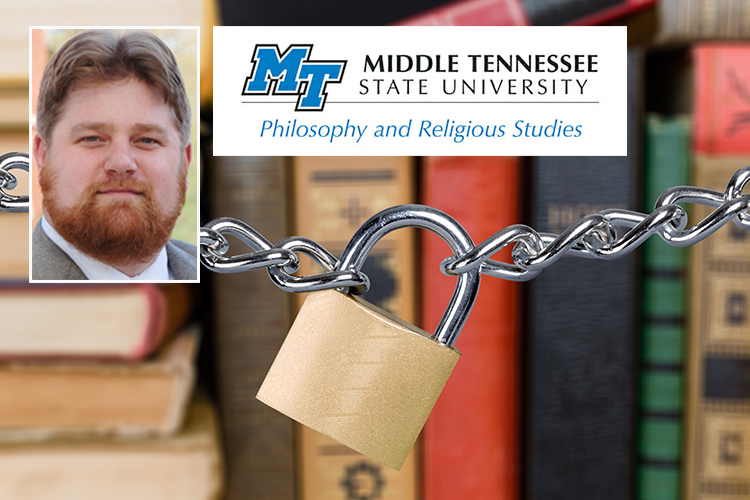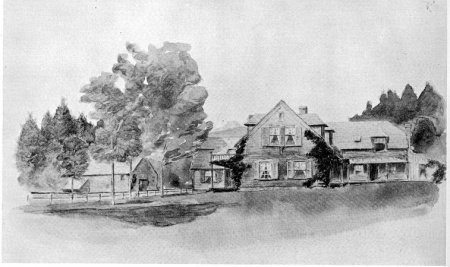==
SSHM ch6; WJ "On a Certain Blindness in Human Beings"; "A Pluralistic Mystic" [see below]
1. The greatest use of life is what, according to WJ?
2. What did WJ write to Benjamin Blood about education?
3. What was WJ's final entreaty in "On a Certain Blindness in Human Beings"?
4. What does WJ say is the difference between resignation and hope?
5. What would we lose, if we were without feeling?
6. When does a life become "genuinely significant"?
7. "To miss ___ ___ is to miss all."
8. "Life is always worth living" if you have responsive sensibilities like ____'s.
9. What is distinctive about B.P. Blood's version of mysticism?
10. What's WJ's last word in philosophy?
LH
- Why did Glaucon say we pretend to care about justice? Does KS agree? Do you?
- What does KS say about Maya? Do you think living well and being happy are the same?
- What was Simone Weil's self-sacrifice? Is her life and death illustrative of what it truly means to care about injustice?
- For Weil, reading is a metaphor for what?
- What do Weil and Iris Murdoch say we need (and not need) in order to appreciate and care about human suffering and injustice?
- What was Plato's ambition, and what 20th century American philospher shared it?
- What does ideology distort?
- What is KS's advice to those who feel overwhelmed by the injustice of the world?
- What was Marx's eleventh thesis?
- Why does KS call Theodor Adorno a cautionary tale?
- What is "the tyranny of the ameliorative"?
Discussion Questions:
- Can personal struggles, whether with ideas and philosophies or with more tangible life challenges, contribute to a meaningful life and even save it?
- Should truth "mean" something to us, in the existentialist sense of meaning?
- Do you value the experiences in your life that you cannot put into words? Can you give an example? What can you say about it?
- Are you more like tough-minded Hume or tender-minded Leibniz? 132
- Is our world a "mid-world" in Emerson's sense? 133
- What is the "life-and-death significance of the pragmatic method of testing ideas against experience"? 138
- Do you agree that free will is melioristic, where determinism is not? 144
- Have you ever had a Gertrude Stein moment, during an exam? Could her response ever work for you in such a situation, do you think? 152
- How does "zest" makes us all both the same and different? 156
- Is "Hands off" good advice? 158
- Have professors displaced true teachers? 161
- Is "man is the measure" a humanist proposition? 163-5
- What do you hope to create in your life that will outlast it?
- Do you consider it a mark of education to "dally" with suicide?
- Do you agree that maybe is the right answer to "Is life worth living?"
- Could you resign yourself to a hopeless life? Would that life be worth living?
- Do you believe in an "unseen order"? Must you, to be religious?
- Are you willing to "go further than secular skeptics" with respect to religious experience? 181
- What sorts of experiences give you a feeling of eagerness, zest, reality, importance, etc.?
- Have you had an experience you'd describe as "mystical"?
- Do you ever "tap into the sublime"? 182
- Have you ever had an unbidden moment of "perfect exhilaration"?
==
(11.18.21).
Today's poem ("...I begin to wonder about people—I wonder/if they also wonder about how strange it is that we/are here on the earth...") reminds me of this:
“Strange is our situation here upon earth. Each of us comes for a short visit, not knowing why, yet sometimes seeming to divine a purpose. From the standpoint of daily life, however, there is one thing we do know: That we are here for the sake of others —above all for those upon whose smile and well-being our own happiness depends, for the countless unknown souls with whose fate we are connected by a bond of sympathy. Many times a day, I realize how much my outer and inner life is built upon the labors of people, both living and dead, and how earnestly I must exert myself in order to give in return as much as I have received and am still receiving.” Living Philosophies (via Chris Stevens, Northern Exposure)
Teachers are here for the sake of those others we call students, which makes it so gratifying to hear that one of them has mentioned to a colleague that I've made a memorable impression. We can't all be Einstein, but we can try to contribute in some small way to others' happiness while pursuing our own... (
continues)
==
EagernessLISTEN (11.23.21). We conclude Sick Souls, Healthy Minds today in Happiness, with John Kaag's concluding chapter "Wonder and Hope"--a far cry from the "Determinism and Despair" we began with. We also glance at James's own favorite essay, "
On a Certain Blindness in Human Beings," and at his last, "
A Pluralistic Mystic."
Is there a greater use of life than to spend it on something that will outlast it? Surely that depends on what the lasting legacy turns out to be. James spent himself defending experience, sometimes "against philosophy" but always against resignation and despair... (
continues)
==
VI "Pragmatism's Conception of Truth"When Clerk Maxwell was a child it is written that he had a mania for having everything explained to him, and that when people put him off with vague verbal accounts of any phenomenon he would interrupt them impatiently by saying, "Yes; but I want you to tell me the particular go of it!" Had his question been about truth, only a pragmatist could have told him the particular go of it. I believe that our contemporary pragmatists, especially Messrs. Schiller and Dewey, have given the only tenable account of this subject. It is a very ticklish subject, sending subtle rootlets into all kinds of crannies, and hard to treat in the sketchy way that alone befits a public lecture. But the Schiller-Dewey view of truth has been so ferociously attacked by rationalistic philosophers, and so abominably misunderstood, that here, if anywhere, is the point where a clear and simple statement should be made.
I fully expect to see the pragmatist view of truth run through the classic stages of a theory's career. First, you know, a new theory is attacked as absurd; then it is admitted to be true, but obvious and insignificant; finally it is seen to be so important that its adversaries claim that they themselves discovered it. Our doctrine of truth is at present in the first of these three stages, with symptoms of the second stage having begun in certain quarters. I wish that this lecture might help it beyond the first stage in the eyes of many of you... (
continues)
==
The Gospel of RelaxationWilliam James
I wish in the following hour to take certain psychological doctrines and show their practical applications to mental hygiene,—to the hygiene of our American life more particularly. Our people, especially in academic circles, are turning towards psychology nowadays with great expectations; and, if psychology is to justify them, it must be by showing fruits in the pedagogic and therapeutic lines.
The reader may possibly have heard of a peculiar theory of the emotions, commonly referred to in psychological literature as the Lange-James theory. According to this theory, our emotions are mainly due to those organic stirrings that are aroused in us in a reflex way by the stimulus of the exciting object or situation. An emotion of fear, for example, or surprise, is not a direct effect of the object's presence on the mind, but an effect of that still earlier effect, the bodily commotion which the object suddenly excites; so that, were this bodily commotion suppressed, we should not so much feel fear as call the situation fearful; we should not feel surprise, but coldly recognize that the object was indeed astonishing. One enthusiast has even gone so far as to say that when we feel sorry it is because we weep, when we feel afraid it is because we run away, and not conversely. Some of you may perhaps be acquainted with the paradoxical formula. Now, whatever exaggeration may possibly lurk in this account of our emotions (and I doubt myself whether the exaggeration be very great), it is certain that the main core of it is true, and that the mere giving way to tears, for example, or to the outward expression of an anger-fit, will result for the moment in making the inner grief or anger more acutely felt. There is, accordingly, no better known or more generally useful precept in the moral training of youth, or in one's personal self-discipline, than that which bids us pay primary attention to what we do and express, and not to care too much for what we feel. If we only check a cowardly impulse in time, for example, or if we only don't strike the blow or rip out with the complaining or insulting word that we shall regret as long as we live, our feelings themselves will presently be t..he calmer and better, with no particular guidance from us on their own account. Action seems to follow feeling, but really action and feeling go together; and by regulating the action, which is under the more direct control of the will, we can indirectly regulate the feeling, which is not... (
continues)
==
THE LESSONS OF THE GOSPEL OF RELAXATIONby Ed Craig
The Gospel of Relaxation is an essay by William James. It is, in written form, a commencement address he gave to the 1896 graduating class of Boston Normal School of Gymnastics. James, an M.D. (who never practiced as such), was a professor at Harvard, a psychologist, a philosopher, and a popular lecturer at a time when public lectures were in vogue. Think Samuel Clemens/Mark Twain. He was, in fact, the father of American psychology, and became America’s most eminent philosopher. In 1890, James published his masterwork, ten years in the making, Principles of Psychology. It is volume 53 of The Great Books of the Western World. In 1892 he published an abbreviated form of Principles as Psychology: Briefer Course. After publishing these books, James was asked by the Harvard Corporation to give a few public lectures on psychology to Cambridge teachers. Their purpose was to provide some guidance to the proponents of scientific methods of teaching. There were sixteen lectures, later collected as Talks to Teachers. Additionally, in response to invitations to deliver 'addresses' to students at women's colleges, he gave three. These are included as essays in his 1899 volume titled Talks to Teachers on Psychology and to Students on Some of Life’s Ideals. The first of these addresses to students, delivered to the ladies of Boston Normal, was The Gospel of Relaxation. The Gospel is best seen as a guide to inner peace. It provides psychological and philosophical wisdom on the value of equanimity and how to find it. James gives us lessons, based on physiology, psychology, sociology, and philosophy, that we can apply to ourselves, and live a better life. James states his purpose in the first sentence of the essay. He proposes to show the practical application of certain psychological principles to mental hygiene, the conditions or practices conducive to maintaining mental health. (825)i It is to be a self-help lecture. (
continues)
https://1drv.ms/b/s!Ao604sECdB1UqR5jed3RRDe9fvGL?e=vDgpNZ==
On a Certain Blindness in Human BeingsWilliam James
OUR judgments concerning the worth of things, big or little, depend on the feelings the things arouse in us. Where we judge a thing to be precious in consequence of the idea we frame of it, this is only because the idea is itself associated already with a feeling. If we were radically feelingless, and if ideas were the only things our mind could entertain, we should lose all our likes and dislikes at a stroke, and be unable to point to any one situation or experience in life more valuable or significant than any other.
Now the blindness in human beings, of which this discourse will treat, is the blindness with which we all are afflicted in regard to the feelings of creatures and people different from ourselves.
We are practical beings, each of us with limited functions and duties to perform. Each is bound to feel intensely the importance of his own duties and the significance of the situations that call these forth. But this feeling is in each of us a vital secret, for sympathy with which we vainly look to others. The others are too much absorbed in their own vital secrets to take an interest in ours. Hence the stupidity and injustice of our opinions, so far as they deal with the significance of alien lives. Hence the falsity of our judgments, so far as they presume to decide in an absolute way on the value of other persons' conditions or ideals.
Take our
dogs and ourselves, connected as we are by a tie more intimate than most ties in this world; and yet, outside of that tie of friendly fondness, how insensible, each of us, to all that makes life significant for the other!—we to the rapture of bones under hedges, or smells of trees and lamp-posts, they to the delights of literature and art. As you sit reading the most moving romance you ever fell upon, what sort of a judge is your fox-terrier of your behavior? With all his good will toward you, the nature of your conduct is absolutely excluded from his comprehension. To sit there like a senseless statue, when you might be taking him to walk and throwing sticks for him to catch! What queer disease is this that comes over you every day, of holding things and staring at them like that for hours together, paralyzed of motion and vacant of all conscious life? The African savages came nearer the truth; but they, too, missed it, when they gathered wonderingly round one of our American travellers who, in the interior, had just come into possession of a stray copy of the New York Commercial Advertiser, and was devouring it column by column. When he got through, they offered him a high price for the mysterious object; and, being asked for what they wanted it, they said: "For an eye medicine,"—that being the only reason they could conceive of for the protracted bath which he had given his eyes upon its surface.
The spectator's judgment is sure to miss the root of the matter, and to possess no truth. The subject judged knows a part of the world of reality which the judging spectator fails to see, knows more while the spectator knows less; and, wherever there is conflict of opinion and difference of vision, we are bound to believe that the truer side is the side that feels the more, and not the side that feels the less.
Let me take a personal example of the kind that befalls each one of us daily:—
(
continues)
==
A PLURALISTIC MYSTICNot for the ignoble vulgar do I write this article, but only for those dialectic-mystic souls who have an irresistible taste, acquired or native, for higher flights of metaphysics. I have always held the opinion that one of the first duties of a good reader is to summon other readers to the enjoyment of any unknown author of rare quality whom he may discover in his explorations. Now for years my own taste, literary as well as philosophic, has been exquisitely titillated by a writer the name of whom I think must be unknown to the readers of this article; so I no longer continue silent about the merits of Benjamin Paul Blood.
Mr. Blood inhabits a city otherwise, I imagine, quite unvisited by the Muses, the town called Amsterdam, situated on the New York Central Railroad. What his regular or bread-winning occupation may be I know not, but it can’t have made him super-wealthy. He is an author only when the fit strikes him, and for short spurts at a time; shy, moreover, to the point of publishing his compositions only as private tracts, or in letters to such far-from-reverberant organs of publicity as the Gazette or the Recorder of his native Amsterdam, or the Utica Herald or the Albany Times. Odd places for such subtile efforts to appear in, but creditable to American editors in these degenerate days! Once, indeed, the lamented W. T. Harris of the old “Journal of Speculative Philosophy” got wind of these epistles, and the result was a revision of some of them for that review (Philosophic Reveries, 1889). Also a couple of poems were reprinted from their leaflets by the editor of Scribner’s Magazine (“The Lion of the Nile,” 1888, and| “Nemesis,” 1899). But apart from these three dashes before the footlights, Mr. Blood has kept behind the curtain all his days.[2]
The author’s maiden adventure was the Anesthetic Revelation, a pamphlet printed privately at Amsterdam in 1874. I forget how it fell into my hands, but it fascinated me so “weirdly” that I am conscious of its having been one of the stepping-stones of my thinking ever since. It gives the essence of Blood’s philosophy, and shows most of the features of his talent–albeit one finds in it little humor and no verse. It is full of verbal felicity, felicity sometimes of precision, sometimes of metaphoric reach; it begins with dialectic reasoning, of an extremely Fichtean and Hegelian type, but it ends in a trumpet-blast of oracular mysticism, straight from the insight wrought by anaesthetics–of all things in the world–and unlike anything one ever heard before. The practically unanimous tradition of “regular” mysticism has been unquestionably monistic; and inasmuch as it is the characteristic of mystics to speak, not as the scribes, but as men who have “been there” and seen with their own eyes, I think that this sovereign manner must have made some other pluralistic-minded students hesitate, as I confess that it has often given pause to me. One cannot criticise the vision of a mystic–one can but pass it by, or else accept it as having some amount of evidential weight. I felt unable to do either with a good conscience until I met with Mr. Blood.
His mysticism, which may, if one likes, be understood as monistic in this earlier utterance, develops in the later ones a sort of “left-wing” voice of defiance, and breaks into what to my ear has a radically pluralistic sound. I confess that the existence of this
novel brand of mysticism has made my cowering mood depart. I feel now as if my own pluralism were not without the kind of support which mystical corroboration may confer. Morrison can no longer claim to be the only beneficiary of whatever right mysticism may possess to lend prestige.
This is my philosophic, as distinguished from my literary, interest, in introducing Mr. Blood to this more fashionable audience: his philosophy, however mystical, is in the last resort not dissimilar from my own... (
continues)
...
“There are sadness and disenchantment for the novice in these inferences, as if the keynote of the universe were low, but experience will approve them. Certainty is the root of despair. The inevitable stales, while doubt and hope are sisters. Not unfortunately the universe is wild–game flavored as a hawk’s wing. Nature is miracle all. She knows no laws; the same returns not, save to bring the different. The slow round of the engraver’s lathe gains but the breadth of a hair, but the difference is distributed back over the whole curve, never an instant true–ever not quite.”
“Ever not quite!”–this seems to wring the very last panting word out of rationalistic philosophy’s mouth. It is fit to be pluralism’s heraldic device. There is no complete generalization, no total point of view, no all-pervasive unity, but everywhere some residual resistance to verbalization, formulation, and discursification, some genius of reality that escapes from the pressure of the logical finger, that says
“hands off,” and claims its privacy, and means to be left to its own life. In every moment of immediate experience is somewhat absolutely original and novel. “We are the first that ever burst into this silent sea.” Philosophy must pass from words, that reproduce but ancient elements, to life itself, that gives the integrally new. The “inexplicable,” the “mystery,” as what the intellect, with its claim to reason out reality, thinks that it is in duty bound to resolve, and the resolution of which Blood’s revelation would eliminate from the sphere of our duties, remains; but it remains as something to be met and dealt with by faculties more akin to our activities and heroisms and willingnesses, than to our logical powers. This is the anesthetic insight, according to our author. Let my last word, then, speaking in the name of intellectual philosophy, be his word.–“
There is no conclusion. What has concluded, that we might conclude in regard to it? There are no fortunes to be told, and there is no advice to be given.–Farewell!” 






